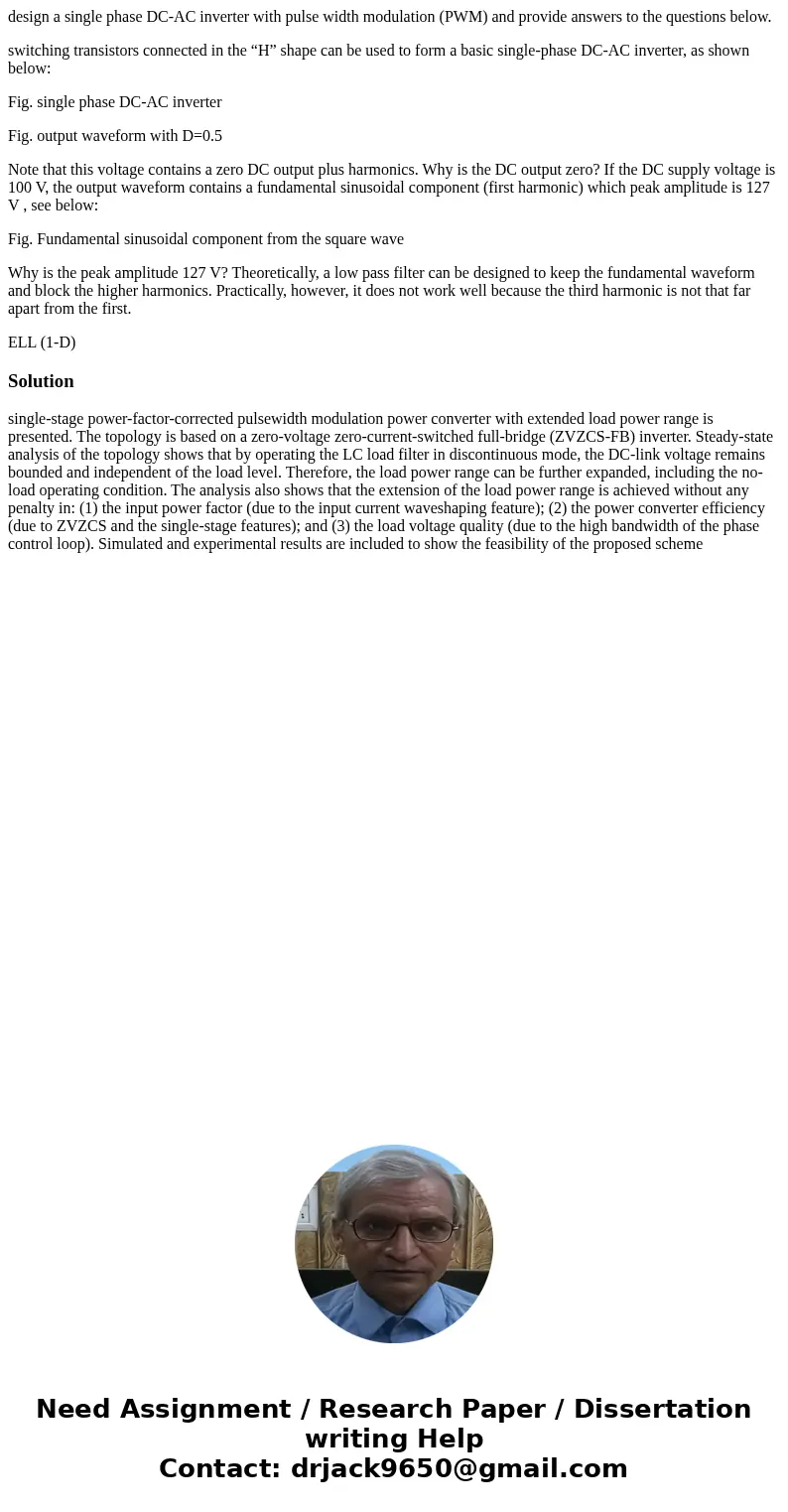design a single phase DCAC inverter with pulse width modulat
design a single phase DC-AC inverter with pulse width modulation (PWM) and provide answers to the questions below.
switching transistors connected in the “H” shape can be used to form a basic single-phase DC-AC inverter, as shown below:
Fig. single phase DC-AC inverter
Fig. output waveform with D=0.5
Note that this voltage contains a zero DC output plus harmonics. Why is the DC output zero? If the DC supply voltage is 100 V, the output waveform contains a fundamental sinusoidal component (first harmonic) which peak amplitude is 127 V , see below:
Fig. Fundamental sinusoidal component from the square wave
Why is the peak amplitude 127 V? Theoretically, a low pass filter can be designed to keep the fundamental waveform and block the higher harmonics. Practically, however, it does not work well because the third harmonic is not that far apart from the first.
ELL (1-D)Solution
single-stage power-factor-corrected pulsewidth modulation power converter with extended load power range is presented. The topology is based on a zero-voltage zero-current-switched full-bridge (ZVZCS-FB) inverter. Steady-state analysis of the topology shows that by operating the LC load filter in discontinuous mode, the DC-link voltage remains bounded and independent of the load level. Therefore, the load power range can be further expanded, including the no-load operating condition. The analysis also shows that the extension of the load power range is achieved without any penalty in: (1) the input power factor (due to the input current waveshaping feature); (2) the power converter efficiency (due to ZVZCS and the single-stage features); and (3) the load voltage quality (due to the high bandwidth of the phase control loop). Simulated and experimental results are included to show the feasibility of the proposed scheme

 Homework Sourse
Homework Sourse